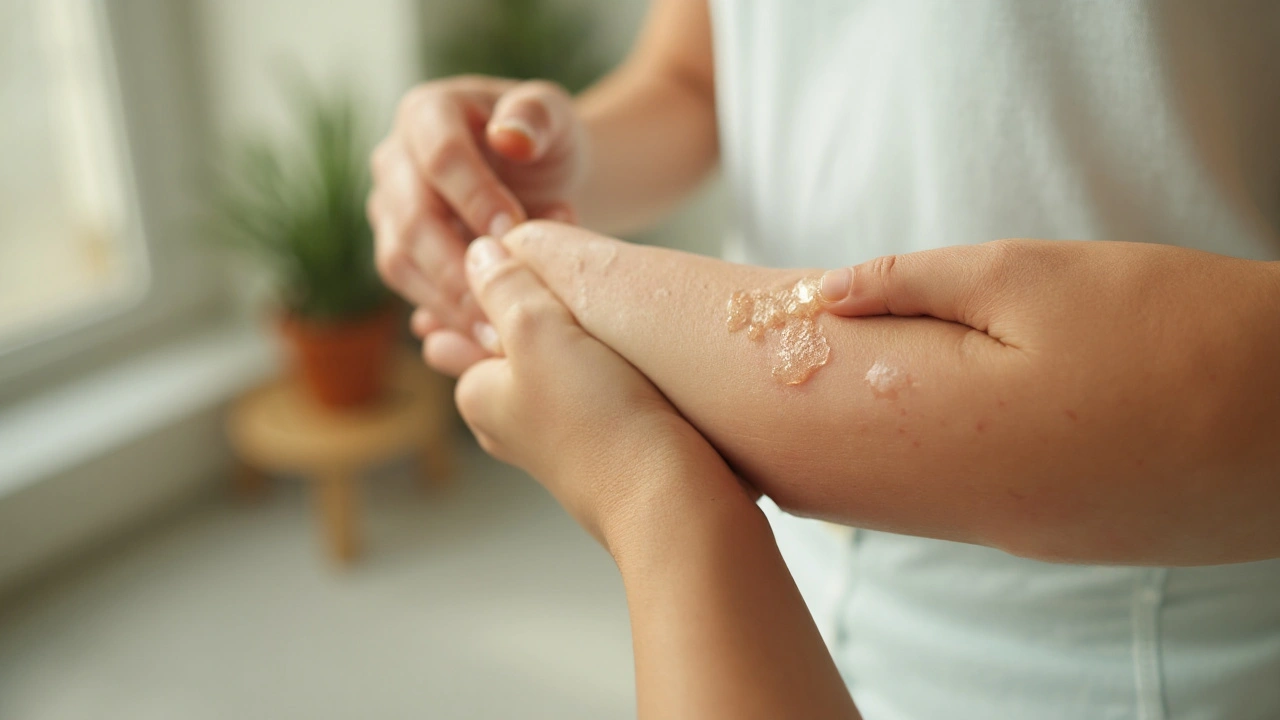Eczema Treatment: Quick Relief Strategies
If you’re constantly battling dry, itchy patches, you know how frustrating eczema can be. The good news is you don’t have to suffer in silence. Below are real‑world steps you can take today to calm flare‑ups, protect your skin, and keep the itch at bay.
Over‑the‑counter options that actually work
Most people start with stuff you can grab at the drugstore. Look for a fragrance‑free, hydrating moisturizer that contains ceramides or colloidal oatmeal. Apply it right after a shower while your skin is still damp – that locks in moisture and reduces the dry‑scratch cycle.
For active itching, an 1% hydrocortisone cream is a solid starter. It cuts inflammation without the side effects of stronger steroids. Use it only on the affected area, no more than three days in a row, and then switch back to your moisturizer.
If you prefer a non‑steroid route, try a 1% pramoxine or calamine lotion. Both give a cooling effect that distracts the nerve endings and eases the urge to scratch.
When prescription strength is needed
Sometimes, OTC products aren’t enough. If your rash spreads, bleeds, or becomes painful, it’s time to talk to a dermatologist. They may prescribe a medium‑strength steroid like triamcinolone or a stronger option such as betamethasone. These work faster but require careful use – follow the doctor’s instructions and keep the treatment period short.
For chronic cases, doctors often suggest topical calcineurin inhibitors (tacrolimus or pimecrolimus). They don’t thin the skin like steroids and are safe for long‑term use on sensitive areas like the face.
Natural remedies that can help
Many people find relief with gentle, natural approaches. A daily bath with colloidal oatmeal or a handful of unsweetened coconut oil can soothe inflammation. Just be sure the oil is pure; scented versions may trigger a flare.
Applying a thin layer of plain petroleum jelly before bedtime creates a barrier that prevents water loss overnight. This simple step can dramatically improve skin texture over a few weeks.
Some folks swear by tea tree oil or chamomile compresses, but use them sparingly and always dilute the oil in a carrier to avoid irritation.
Lifestyle tweaks that keep eczema in check
Your environment plays a big role. Keep indoor humidity around 40‑50% with a humidifier during dry months. Wear soft, breathable fabrics like cotton; avoid wool or synthetic blends that can rub against the skin.
Stress is a hidden trigger for many. Short breathing exercises, brisk walks, or even a five‑minute meditation can lower cortisol levels and reduce flare‑ups.
Lastly, keep a symptom diary. Note what you ate, the weather, and any new products you tried. Patterns often emerge, and you’ll have concrete info to share with your doctor.
Bottom line: eczema isn’t a life sentence. With the right moisturizers, smart use of OTC or prescription meds, and a few lifestyle tweaks, you can get the itch under control and enjoy smoother, calmer skin.
 22 September 2025
22 September 2025
Aloe Vera for Fast Dermatitis Relief: Natural Healing Benefits
Discover how aloe vera soothes dermatitis, reduces inflammation, moisturizes skin, and offers a safe, natural alternative to steroids. Get practical tips and a clear comparison with other treatments.
Latest Posts
-

6 Effective Alternatives to Prelone in 2025
-

Travel Sickness and the Elderly: Caregiver Tips for a Smooth Journey
-

Nitroglycerin Environmental Impact: Tips to Reduce Harmful Effects
-

Top Alternatives to Northwest Pharmacy: Finding the Best Online Pharmacies in 2024
-

How to Check Lot Numbers and Recalls When Clearing Expired Medications

19